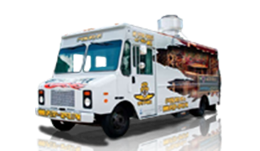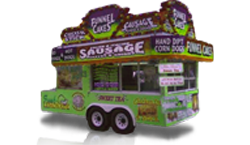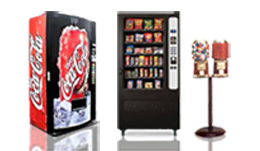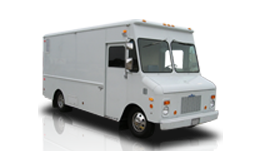How to Run an Eco-friendly and Zero Waste Food Truck

These days, the food truck’s popularity is one for the books. More and more entrepreneurs and customers are craving to experience an innovative business. Clearly, many people are interested in tasting great food, unique locations, low-key ambiance, and inexpensive but delicious food! As high as the demand is for food trucks everywhere, many express their concerns about whether it is an environmentally friendly industry.
Is it possible to be in the food truck market, keep the processes eco-friendly, and even deliver a zero-waste way of life? Wouldn’t it be expensive on your end? What are the crucial effects for you, and will it be in your favor?
The fact is becoming a zero waste, and eco-friendly food truck business isn’t too tricky. The steps are simple to attain the particular approach through commitment, discipline, and dedication. Do you find yourself fascinated with the food truck industry, or you’re already in it? If so, are you seriously considering searching for the methods of running and advocating eco-friendliness and zero-waste ways? Here’s what you need to know.
What’s Inside
Waste Reduction
Since you are in the food and beverage industry, you will be serving it via different plates, bowls, food boxes, and utensils. The commonly used material is plastic, whether cups, plates, straws or sometimes for packing the whole meal. Because of the massive demand for food trucks, the waste level is expected to be relatively high and detrimental to the environment.
The waste reduction applies to cutting out all waste, specifically materials that prove to harm the environment. Aside from plastic, Styrofoam plagues the environment and health of consumers because of the chemicals that leach into it and can contaminate the food, ultimately affecting one’s wellness and even the reproductive system.
Choosing biodegradables is an incredible choice and a great alternative to counter these disadvantages. You may select from wooden-based materials, Polyhydroxybutyrate Bioplastics or PHB, Natural Fibers and Bio resin, plant-based materials, and Polylactic Acid or PLA Styrofoam. Non-plastic plates, silverware, cups, mugs, and glasses are an opportunity too for customers who’ll dine at your food truck.
Recycling and Composting
Since you own a business that focuses on preparing, cooking, and serving food, wouldn’t you think it’s wise to have a compost bin? When you do meal plans and aim to reduce food waste, there are specific parts your customers won’t consume. These are mostly fruits and vegetable peels and other forms of food scraps.
When composting, you guarantee that the unfinished food waste will become a nutrient-rich fodder that the environment can fully benefit from. However, you must keep in mind and educate your staff. Even your customers should be careful with scrap segregation like vegetable and fruit peels, tops, and bottoms, tea bags, rice and grain, and food without meat, oil, and dairy.
Recycling has been encouraged for many years already. Still, people are not fully educated on the steps they have to take. Making a difference starts with your approach to recycling the materials you’ve used in your food truck business. Sometimes, people cannot escape the need for plastics. Selecting single-use plastics and even disposable food packaging will motivate recycling more.
Minimize Energy Utilization
All appliances and supplies that you will need for the food truck’s kitchen determine the consumption of energy levels. To ensure that you are moving forward on the correct path, pick out the special appliances for being energy savers. You’re also saving considerable amounts of money as you minimize energy utilization.
Plan out an Eco-Friendly Menu and Choose Sustainable Sources
Branding your business as environmentally friendly will put you in a powerful spotlight on whether you are genuinely advocating it or not. The menu you serve reflects your intention as well. Thus, planning out a healthy and sustainable food menu is beneficial to your cause.
You can achieve this goal by getting ingredients and sources locally and especially when special menus are in season. Organic ingredients attract many consumers as it promises a healthier alternative than those filled with GMOs. Genetically modified crops and meat production have become rampant in the market. These offer nothing in matters concerning health. As a result, searching for sustainable sources is the best move to pursue.
These sources often provide locally grown and high-quality dairy, meat, produce grains, and spices. When you do business with these businesses, it further encourages and boosts the local economy. Customers will keep coming back for your tasty, healthy, and eco-friendly menu.
Search for Alternative Power or Fuel
There is no lying out about the reality that food trucks consume a lot of fuel. It happens as expected because some of these trucks are huge and require a hefty amount of power and fuel to start and go on with business. There’s always an option available for people who seek it, especially when it comes to finding a cleaner fuel source for consumption.
Have you ever heard about biodiesel? It’s a fantastic alternative. These days, many food trucks also power their appliances by installing solar energy panels. It is so energy efficient that the money you can save will add a respectable amount to your business for additional investments.
These are only a few of the outlined steps that you can do to successfully convert your food truck to an eco-friendly and zero-waste business. Continuous education in the community will encourage a ripple effect that shift’s to a more viable, healthier, safer, and sustainable future. So, if you’re ready to be the change you want to see, find the best food truck for your advocacy and business here.







